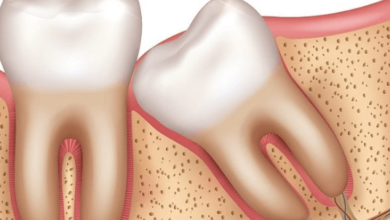Decoding Autoimmune Disorders Symptoms Treatments and Trailblazing Research

This blog offers essential insights into autoimmune disorders, which occur when the immune system attacks the body’s own tissues. It covers symptoms, treatment options, and the latest research, making it a valuable resource for patients, caregivers, and medical professionals seeking to understand these conditions better.
A Crash Course on Autoimmune Disorders
Autoimmune disorders occur when the immune system—the body’s defense against infections—malfunctions. Typically, the immune system can differentiate between foreign invaders like viruses and bacteria and the body’s own cells. However, in autoimmune disorders, the immune system mistakenly attacks its tissues, leading to inflammation and damage.
This malfunction can affect various body parts, leading to diseases like rheumatoid arthritis, lupus, and multiple sclerosis. Understanding this process is crucial for grasping why these disorders manifest in such varied ways. The complexity of the immune system, coupled with genetic and environmental factors, contributes to the development of autoimmune diseases.
Autoimmune disorders can be challenging to diagnose due to their diverse symptoms and overlap with other conditions. However, early identification is vital for effective management and improving the quality of life. Patients and caregivers must be aware of the signs and seek medical advice promptly.
See also: Unraveling Healing Paths Empowering Strategies for PTSD and Trauma Recovery
Recognizing the Signs and Common Symptoms of Autoimmune Disorders
Autoimmune disorders present a wide array of symptoms, often varying depending on the specific condition. However, some common signs include fatigue, joint pain, skin rashes, and unexplained weight changes. These symptoms can be persistent or fluctuate over time, making diagnosis challenging.
Symptoms can vary widely based on the type of autoimmune disorder. For instance, rheumatoid arthritis primarily affects joints, while multiple sclerosis impacts the nervous system. Understanding the specific symptoms related to each disorder is essential for accurate diagnosis and treatment.
Fatigue is a common complaint among those with autoimmune disorders. It can be debilitating, affecting daily activities and overall well-being. Joint pain and inflammation are also prevalent, often leading to stiffness and mobility issues. Skin manifestations, such as rashes or lesions, can provide clues to underlying autoimmune activity.
Getting to the Root Diagnosing Autoimmune Disorders
Diagnosing autoimmune disorders involves a combination of clinical evaluation, blood tests, and imaging studies. Doctors often start with a thorough medical history and physical examination to identify symptoms and potential triggers. Blood tests, such as antinuclear antibody (ANA) tests, can help detect markers indicative of autoimmune activity.
The diagnostic process can be complex due to overlapping symptoms with other conditions. Misdiagnosis is not uncommon, highlighting the importance of consulting specialists familiar with autoimmune disorders. Early detection is crucial for initiating appropriate treatments and preventing irreversible damage.
Challenges in diagnosing autoimmune disorders stem from their unpredictable nature and similarity to other diseases. Symptoms may mimic those of other conditions, leading to delays in diagnosis. Collaborative efforts between patients, caregivers, and healthcare professionals are essential in navigating the diagnostic maze.
Navigating Treatment and Management of Autoimmune Disorders
Managing autoimmune disorders involves a multifaceted approach, including medications, lifestyle changes, and alternative therapies. The primary goal is to reduce inflammation, control symptoms, and improve the patient’s quality of life. Treatment plans are tailored to the specific disorder and individual needs.
Medications commonly used include non-steroidal anti-inflammatory drugs (NSAIDs), corticosteroids, and immunosuppressants. These help manage inflammation and prevent further immune system attacks. Lifestyle modifications, such as a balanced diet, regular exercise, and stress management, can also play a significant role in symptom control.
Emerging therapies, including biologics and targeted treatments like those for Hashimoto’s thyroiditis in Salt Lake City, offer new hope for patients. These therapies specifically target immune system components involved in the disease process. While promising, they may not be suitable for everyone, underscoring the need for personalized treatment plans.
Unveiling the Future The Latest Research in Autoimmune Disorders
Research into autoimmune disorders is continuously evolving, leading to breakthroughs and new insights. Scientists are exploring the genetic and environmental factors contributing to these conditions, aiming to identify potential triggers and preventative measures.
Recent studies focus on personalized medicine, tailoring treatments based on individual genetic profiles. This approach holds promise for improving treatment efficacy and minimizing side effects. Advances in biotechnology and immunology are paving the way for innovative therapies that target specific pathways in the immune system.
Ongoing research is vital for understanding the root causes of autoimmune disorders and developing effective interventions. Clinical trials play a crucial role in testing new treatments and expanding therapeutic options. Staying informed about the latest research empowers patients and caregivers to make informed decisions about their care.
Finding Support and Resources for Patients and Caregivers
Living with an autoimmune disorder can be challenging, but support is available. Numerous organizations and support groups offer resources, education, and community for those affected by these conditions. Connecting with others facing similar challenges can provide valuable emotional support and practical advice.
Online platforms, such as forums and social media groups, facilitate sharing experiences and coping strategies. Healthcare professionals can also offer guidance on managing symptoms and accessing specialized care. Knowledgeable medical teams can help develop personalized treatment plans and monitor progress.
Coping with an autoimmune disorder requires a holistic approach, encompassing medical treatment, lifestyle adjustments, and emotional well-being. Patients and caregivers benefit from seeking support and staying informed about available resources. Empowerment through knowledge and community fosters resilience in the face of challenges.
Conclusion
Autoimmune disorders affect millions worldwide, presenting unique challenges for patients, caregivers, and healthcare professionals. Understanding the symptoms, diagnostic processes, and treatment options is essential for effective management. Ongoing research offers hope for improved therapies and personalized medicine.






